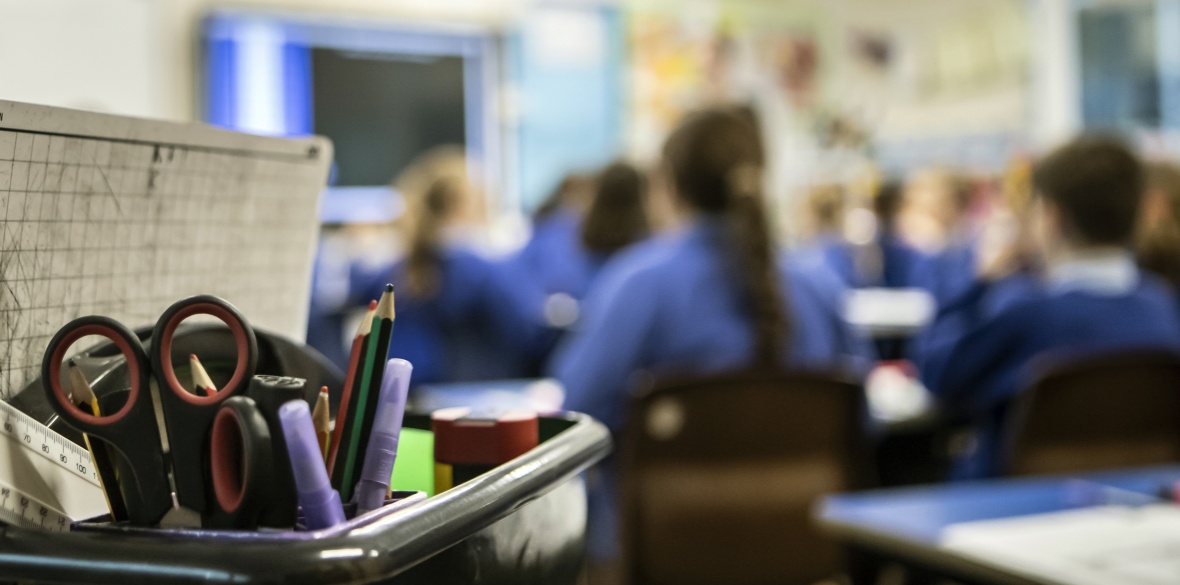This is the last article you can read this month
You can read more article this month
You can read more articles this month
Sorry your limit is up for this month
Reset on:
Please help support the Morning Star by subscribing here
CONGRATULATIONS everyone, the crisis is over. Well, that’s what the government would like us to believe. The race is now on to get everyone back to normal as quickly as possible and get the economy moving again. That of course means that pubs must be open from 6am every day so we can all drink for victory and that schools must reopen so parents can get back to work before they get addicted to furlough.
It doesn’t seem to matter that we still have one of the highest death rates in the world nor that the recent spike in cases in Leicester is being driven by those under 19. The Prime Minister has spoken (or maybe Dom) and the reopening of schools must take place. This is so the poor don’t “suffer,” claims Gavin Williamson. I am not sure if this is meant as a warning or a threat.
The reopening of schools is being sold to the nation as being driven, not out of a desire for ensuring the profits of business are protected, but out of a desire to look after disadvantaged pupils. The irony being that this is the same group of pupils that the government has not cared a jot about for the past 10 years and whose myriad problems it is in fact to blame for.
This is also the same group the government planned not to feed over the summer — until it was forced into an embarrassing U-turn by Marcus Rashford, trade unions and the Labour Party.
Last year I wrote in this newspaper that the government were failing poor pupils. The attainment gap was starting to grow once again. The learning age gap now in GCSE results between wealthy and disadvantaged pupils stands at 18.4 months, with a decade of Tory austerity being to blame. For the government to now claim a new-found interest in this group smacks somewhat of opportunism.
Any failure to make this return happen will of course be blamed on “The Blob,” that reckless group made up of teachers, parents, trade unionists who want to ensure that they and their pupils return to a safe environment. Not on the lack of planning and preparation by government ministers.
The government has also announced that it aimed to help pupils get back to school with good old-fashioned fines. That’s right, after the worst crisis ever in peacetime Britain — which is predicted to be followed by a financial crisis that will make the Great Recession of 2007-8 look like a holiday — the government is going to ask schools to fine already stricken parents who keep their pupils home out of a desire to keep them safe.
Some headteachers though have already said that they will not implement these fines. One headteacher, Chris Dyson, took to Twitter to speak directly to the Education Minister, saying: “Thanks @GavinWilliamson for the record I WON’T be issuing fines I will authorise absence. The fact less than 50 per cent parents have trust in you to send them to school speaks volumes. Threatening won’t help.”
We all know how important it is to get kids back into school and learning but maybe a better way would be to make sure schools are safe rather than punish already struggling parents?
When we finally do return we are going to be faced with a massive attainment gap. The wealthiest have been able to, and will continue to be able to, hire private tutors to fill in gaps in learning. Private schools through use of technology and other methods have managed to mostly carry on teaching as normal. Some will of course look to blame state schools and feckless parents for this but that ignores the home circumstances of many pupils.
Come September something must be done to narrow this gap. This cannot fall to individual teachers. This must not mean bullying and cajoling already overworked teachers to give up more of their family time. The government has promised £1 billion in catch up funding which is of course welcome but some headteachers have raised concerns that this could be recycled from existing budgets.
They are right to be concerned. The government has form of playing this trick on the electorate — with hospitals which aren’t hospitals and nurses who already work for the NHS.
It is also nowhere near enough to deal with the last 10 years of cuts to the education sector. In fact the School Cuts campaign estimates that schools and colleges need £12.6 billion per year by 2022/23 if they are to tackle the many issues they face.
Schools have also been told, in guidance published by the government, that it will not reimburse schools for any extra costs they incur while preparing for a full return to school after the coronavirus lockdown. Schools will, as usual, do the best they can under the circumstances but this will impact on future budgets and spending.
The problems facing disadvantaged pupils are so multifaceted and require a much more drastic approach than simply giving a token amount which will of course somehow “trickle down” into the pockets of private companies. There needs to be a public health approach to the issue. It needs to start before a child is even born. The vandalism done by 40 years of neoliberalism must be undone if we really want to avoid these pupils suffering. Any Rooseveltian “New Deal” should start with undoing the damage caused by free-market ideology.











